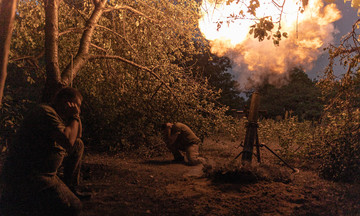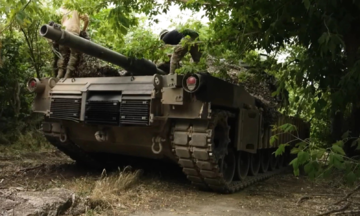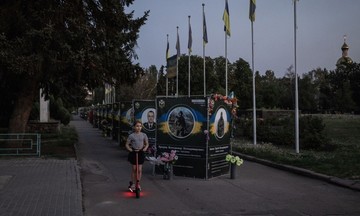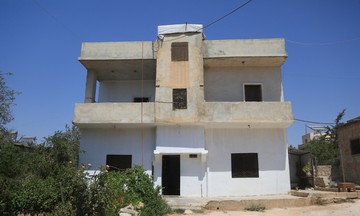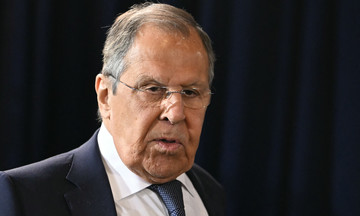Iraqi officials on Tuesday began the first phase of a project to excavate the Al Khasfa sinkhole, about 20 km south of Mosul. The goal is to locate victims killed during the period when ISIS controlled the area from 2014 to 2017.
Experts are prioritizing excavation near the surface to gather evidence. An AFP reporter at the scene said many skulls have already been found. Some remains were covered with nylon for preservation at the site, as they could not yet be moved to a collection area. All remains will be handed over to the Iraqi Institute of Forensic Medicine for DNA testing to identify the victims.
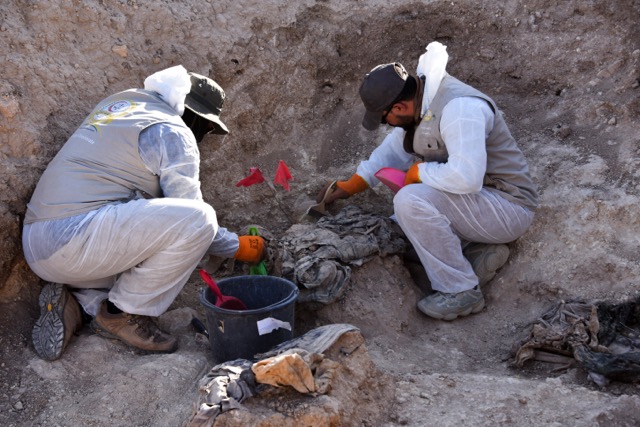 |
Experts excavate the bodies of victims at Al Khasfa on 17/8. Photo: AFP |
Experts excavate the bodies of victims at Al Khasfa on 17/8. Photo: AFP
Nineveh provincial judicial officials are directly supervising the excavation. The process is facing challenges due to the sulfurous groundwater at Al Khasfa, which makes the soil loose and could damage the remains, complicating DNA analysis.
Nineveh Governor Abdul Qadir Al Dakhil also announced on Tuesday that officials will build a memorial to the victims.
According to a 2018 United Nations report, the mass grave at Al Khasfa could contain the remains of at least 4,000 people, mostly government soldiers, security personnel, Yazidis, and civilians from the Mosul area. In 2016, ISIS reportedly executed 280 people there in a single day.
The Al Khasfa mass grave, 110 m in diameter and about 150 m deep, is considered one of Iraq's largest "war crime" scenes. Relatives of ISIS victims have been calling for the excavation of this area for years. However, security concerns, technical challenges, and funding issues delayed the project.
The United Nations estimates that there are over 200 mass graves from the ISIS era across Iraq, mostly near Mosul, containing the remains of between 6,000 and 12,000 victims.
The United Nations unit investigating ISIS crimes concluded its mission in Iraq in 2024 after the government refused to renew the agreement. However, Al Khasfa remains a priority case for local human rights organizations and Nineveh provincial officials.
By March, local authorities announced they had secured funding and logistical support to begin the project.
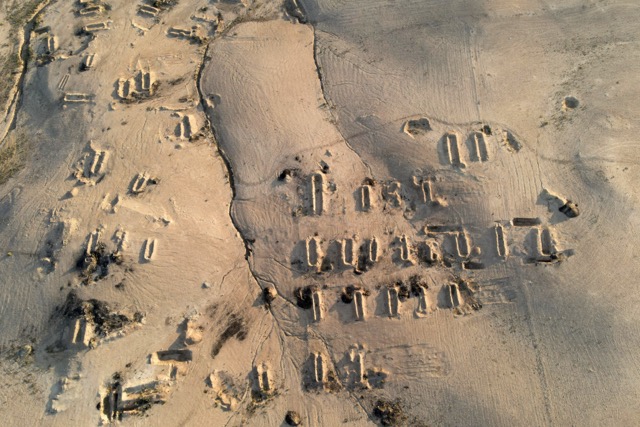 |
Excavation points surround the Al Khasfa sinkhole, about 20 km from Mosul. Photo: AFP |
Excavation points surround the Al Khasfa sinkhole, about 20 km from Mosul. Photo: AFP
ISIS emerged in 2014, seizing large swathes of territory in Iraq and Syria and declaring a self-proclaimed "state" across both countries. United Nations investigations concluded that ISIS conducted a brutal campaign of widespread and systematic human rights abuses and violations of international humanitarian law in the territories it controlled.
By 2017, Iraqi government forces and militias, backed by a US-led international coalition, ousted ISIS from Mosul and reclaimed all territory the group once held.
Thanh Danh (AFP, National)






